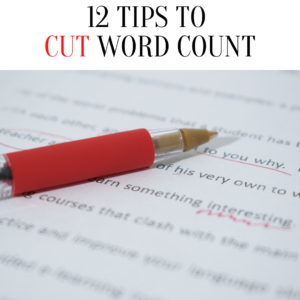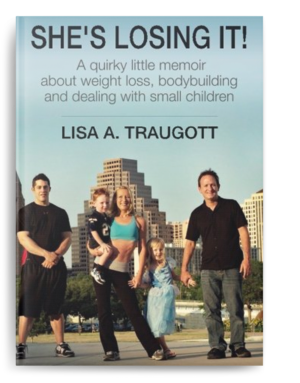12 Tips to Cut Word Count
Why say something in one word when you can say it in 36 words, right? Wrong. Unless you’re Charles Dickens and getting paid by the word, today’s reader doesn’t have the time/attention span to read tons of exposition or lengthy descriptions of the sunset. Sure, if you’re an established New York Times bestselling author, you can spill as much ink as you want, but for those of us just starting out, we have to limit our word count.
My current work in progress, To Rescue a Witch, has taught me that I overwrite. I keep a separate file of all my book cuts, which is over 200,000 words!! That’s at least two novels. While getting it ready for my big edit before I start submitting to agents, the word count came in at 123,951. From what I’ve been told, agents won’t look at a debut novelist whose manuscript is over 110,000 words, plus I only paid for 110,000 words, so I had to cut to stay in budget. Here are some strategies and resources that helped me cut 13,951 words in three weeks.

- Break your story into three acts and check your word count. Let’s say a balanced novel will show Act I is 25,000 words, Act II is 50,000 words and Act III is 25,000 words. If your Act I is 75,000 words, you’ve spotted your problem child. Start there. Then, divide your story into small chunks of 5,000 words at a time. This makes word searches easier and also helps with momentum since you can see steady progress.
- Delete unnecessary scenes. If the scene can be deleted without impacting the storyline whatsoever, it needs to go, even if it’s really funny or well written. Remember how I told you I had over 200,000 word cuts from my story? That’s because I fell in love with two of my secondary characters writing their own backstories and character arcs, but they didn’t tie to my main plot. So one character when from having seven point of view chapters to just two and another had his four point of view chapters completely eliminated. He’s still in the story, just seen through the protagonist’s eyes instead.
- Consolidate characters. My book had a cast of thousands. The protagonist, William MacLeod, has five sons and they all have something to say. But not in this book anymore. I shipped one son off to the Isle of Skye since he wasn’t really adding anything and my beta readers were finding it had to keep track of every one. This meant I had one less physical description to write and several lines of dialogue that could be cut as well. With him gone I could better focus on the oldest son so the readers could know him better.
- Delete subtle redundancies. She nodded her head. What else would she nod? Cut the word head. He shrugged his shoulders. Cut the word shoulders. Here’s The Ultimate Self Editing Checklist by Jerry Jenkins which I kept next to me during my editing phase.
- Eliminate as many crutch words as possible. These are often filler words and don’t add any power to your prose. Keep them if they are necessary for clarity, but often they aren’t. Examples: That, beginning, realize, as though, seems, just.
- Cut the word ‘of’. This was a real game changer. Do a search (Ctrl F) and type (space) of (space) so you are only seeing the word of and not off or loft. In one section I used the word of 113 times! For example: The church disappeared with the turn of the road. (9 words) Became: The church disappeared with the road curve. (7 words). The meaning stayed exactly the same and it saved two words.
- Cut sensory words. Look/saw, hear/heard, smell/smelled, taste/tasted, feel/felt, touch/touched.
- Cut weak internal words: thought/wondered/realized/believed
- Cut ‘said’ except for clarity. If there are only two characters speaking and one has an accent, in theory the reader would know exactly who is speaking without any need for tags. You’d be surprised how much your word count drops after cutting gratuitous he said/she said from your prose.
- Cut hedging words. These take away power. Why would your character slightly do anything? Be bold! Examples: a little, sometimes, slightly, almost, probably, basically, somehow, rather, quite.
- Crutch words showing weak verbs. One strong verb is better than an adverb + weak verb. Instead of writing ‘It made her very angry’ try ‘It made her furious.’ Here are common adverbs: very, certainly, quite, actually.
- Cut four words per sentence. This tip is from K.M. Weiland: 5 Ways to Trim Your Book’s Word Count. She mentions this won’t always work, especially if the sentence is only one word, but it’s helpful if you have longer passages.
Here’s a final bonus tip: Keep a running document of all your cuts, especially if you are cutting scenes, plotlines or characters. You never know when you can recycle them for a future book.
Hope that helps! Keep writing.
Lisa 😉
Here’s my story. Available here.

Copyright (c) Lisa Traugott 2023. All rights reserved.